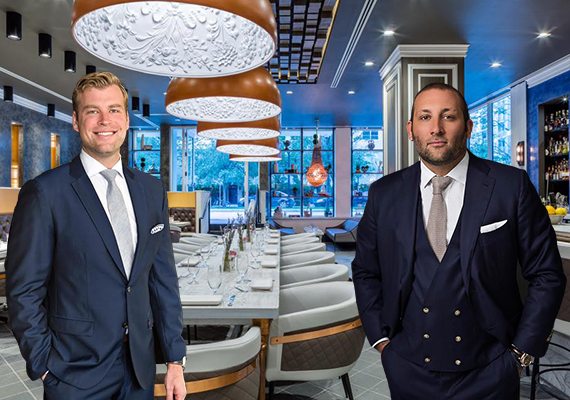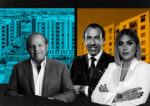Trending
Miami Beach has Bakehouse singing the blues after code says no jazz on Sundays

In a city known for throbbing all-night discos, oversized speakers blasting rap music on Ocean Drive and salsa-blaring golf buggies ferrying tourists from bar to bar, one might think that a little smooth jazz at a Sunday brunch might not be that controversial.
But a code violation issued for playing a saxophone at the popular Bakehouse Brasserie at 808 First Street recently is now being appealed in court — and it’s being challenged for violating the First Amendment.
The Bakehouse is the latest venture from Menin Hospitality led by Jared Galbut and Keith Menin, scion’s of two of Miami Beach’s leading real estate and hospitality industry families. Since it opened in November, the 87-seat restaurant has been a popular addition to Miami Beach’s hip South-of-Fifth neighborhood.
A city ordinance for the mixed-use district bans restaurants from playing amplified music of any kind, and at any decibel in the area, except for non-amplified music of piano or string instruments “that does not interfere with normal conversation.”
That was enough to get the Bakehouse cited by a code enforcement officer on Jan. 8th because there was a saxophonist on the premises playing jazz. The Bakehouse had started a jazz brunch on New Year’s Day, and it proved so popular that management made plans to continue it every Sunday.
Now the Bakehouse is heading to court. According to the lawsuit, filed by attorney Ron Lowy of Lowy & Cook, the ordinance “constitutes an unreasonable restraint on protected speech or other expression protected by the First Amendment to the United States Constitution, including the production of reasonable sound.”
Lowy said the U.S. Supreme Court and Florida courts have previously ruled that a municipal government may regulate decibel level but can’t restrict or regulate the type of music or the types of instruments being played.
Lowy told The Real Deal that the ordinance in question clearly restricts the type of music being played at the Bakehouse. “It allows pianos, it allows string instruments, but prohibits anything else: a harmonica, whistling, singing or any type of music is absolutely prohibited unless it is a piano or stringed instrument,” he said, “and that is an unreasonable limitation that has no relationship to protecting a community.”
Lowy says he expects the case to be heard later this week at the Miami Beach District courthouse. City officials were unavailable for comment on Monday but Miami Beach Mayor Philip Levine was quoted in the Miami Herald as saying the ordinance was “overregulation,” and that he would ask the city commission to reconsider the ordinance if the court rules to uphold it.
Lowy said he expects the city will, in fact, revise its ordinance. “It is my belief that we will prevail, and the city will write a new ordinance that relates to decibel level,” he said. “Should we not prevail, which is unlikely, I still expect the city to respond intelligently and re-write the ordinance and make it less restrictive.”
Frank Del Vecchio, a resident of the area and longtime civic activist, told TRD that plans by the Bakehouse to appeal the city ordinance on First Amendment grounds are, in his words, “absurd.”
“The rule is entertainment South-of-Fifth is a zoning prohibition, and this the only defense we have over nightlife pushing to South-of-Fifth in a way that destroyed the Ocean Drive entertainment district,” said Del Vecchio, who says any move to re-write noise ordinances in the area will be vigorously opposed by area residents. “For 20 years the entertainment industry has been trying to manipulate the rules and get the rules changed and we have fought and won for 20 years.”




